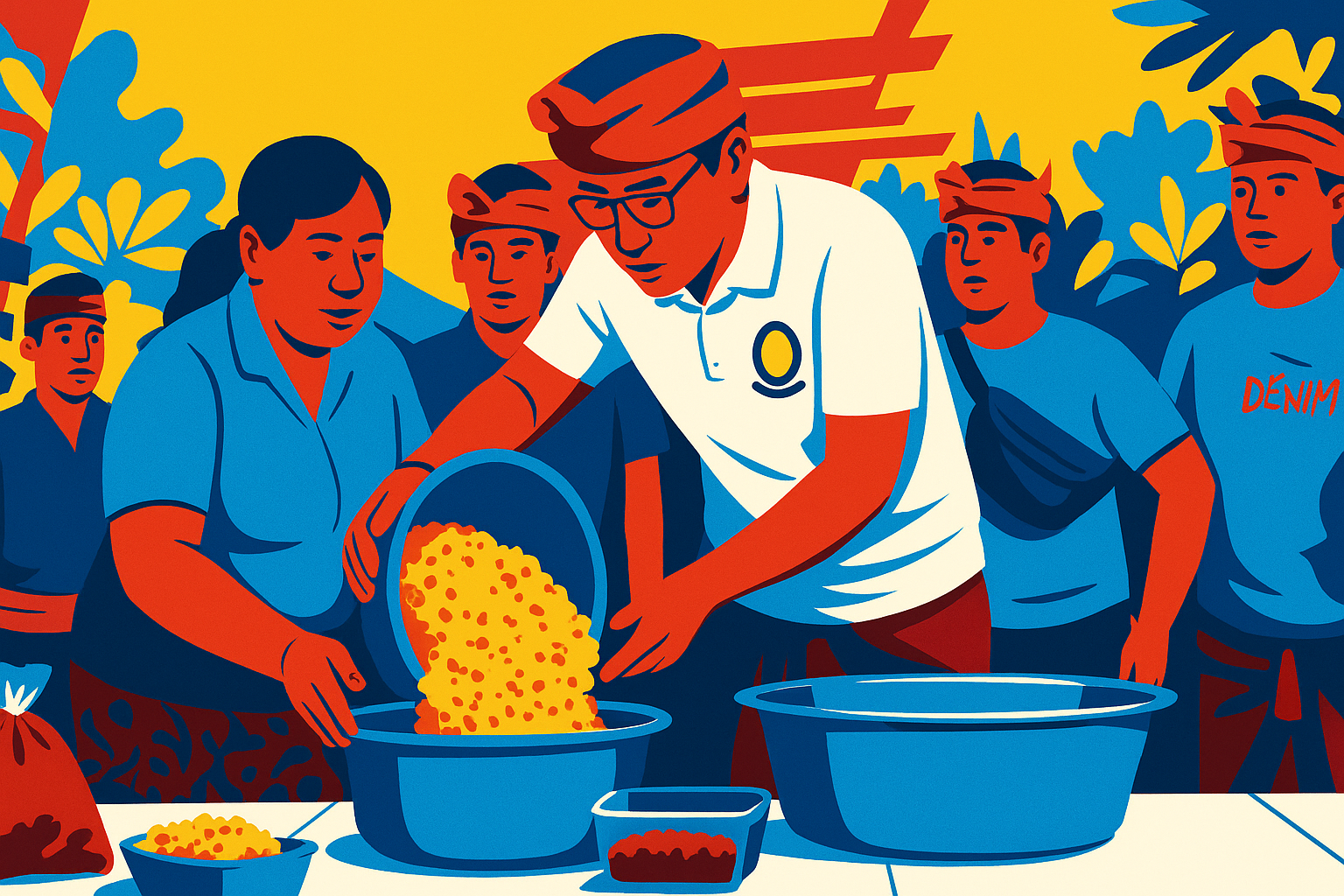By: I Gede Putu Rahman Desyanta, CEO of Baliola (The final part of three articles)
(The following article was published on the Bekraf website)
In a world that constantly changes, we are often faced with a dilemma: must we abandon tradition in order to become modern? Must we sever the roots of the past to step into the future?
History, however, proves otherwise. Strong civilizations are those that can let their roots grow into the sky—those that can discover new forms of old values—without losing their meaning, without losing their direction. This is the context when we talk about Menyama Braya and blockchain technology.
Technology Is Not Neutral
Often, technology is seen as a neutral tool—simply there to be used. But in reality, how technology is designed and operated determines its direction and impact on society. Does it strengthen domination, or does it foster equality? Does it accelerate, yet leave many behind?
In this context, blockchain offers something different. It is not merely a transaction ledger or a crypto framework. Blockchain is a digital social system that can revive old values in new forms.
Once we identify the five core values of Menyama Braya—shared ownership, openness, equality, trust, and mutual support—we find that these values are not only compatible with blockchain, but can even become the very foundation of the technology itself.
Let’s see how these parallels align:
- Shared Ownership (distributed ownership)
In traditional communities, the balai banjar (community hall), water sources, and cooperative activities are seen as shared assets. In blockchain, this principle is reflected in the distributed ledger—each participant holds an identical copy of the data, with no single point of control. This is not just a matter of system efficiency, but a sense of collective ownership in digital form. - Openness
All blockchain transactions are recorded and accessible to anyone. Like an open banjar meeting, blockchain creates a system with no hidden agendas. This openness fosters a sense of security, fairness, and accountability. - Equality
In a blockchain system, no central authority controls everything. Anyone participating in the network has equal access and rights. This aligns with the Menyama Braya value of egalitarianism in action. Blockchain is a digital system that “does not judge who is speaking, but rather what is being said.” - Trust
In traditional communities, trust is built from shared history. In blockchain, an immutable digital record becomes the basis of trust—not from promises, but from the system’s very architecture. Once data is recorded, it becomes evidence. It cannot be manipulated or unilaterally revised. - Mutual Support
In the banjar, someone is recognized for their contribution. In blockchain, every transaction can be verified by anyone. This creates a system that strengthens participation: anyone can prove their contribution, and therefore, have a voice in the system.
Blockchain as a Digital Banjar
If Menyama Braya once lived in the social structures of traditional villages, blockchain offers the possibility of forming a “digital banjar”:
Without walls, yet with shared values.
Without a single leader, yet with collective direction.
Without physical meetings, yet with collective decisions.
With blockchain, local values are no longer confined to a geographical space. They can reach the world, becoming a digital social model that is fair, open, and high in trust.
Bali does not need to abandon its heritage to be part of the future. In fact, from this land that upholds Tri Hita Karana and lives by Menyama Braya, we can offer an alternative model to the world: that digitalization does not have to erase noble values.
We do not have to be victims of algorithms. We can become system designers. We do not have to lose meaning. We can embed meaning into systems. And blockchain is one of the arenas where this battle can be won—because it creates space for values, not just speed.
Digital Menyama Braya as A New Path
When Menyama Braya meets blockchain, we are not merely matching the old with the new. We are discovering that the spirit of togetherness can live within the body of technology—if we are conscious and careful in designing it.
Now is the time for us not just to be digital users, but also guardians of values and designers of the future.
A digital world built solely on speed will soon become obsolete. But a digital world built on values will endure and grow—because it has a soul. And from Bali—with its deep roots and vision that reaches the sky—we can offer the world proof that technology can be civilized, the digital can be humane, and the future can remain rooted.
First Article : Menyama Braya Digital: From Bale Banjar to Blockchain
Second Article : Menyama Braya and The Five Pillars of Togetherness in The Digital Age
